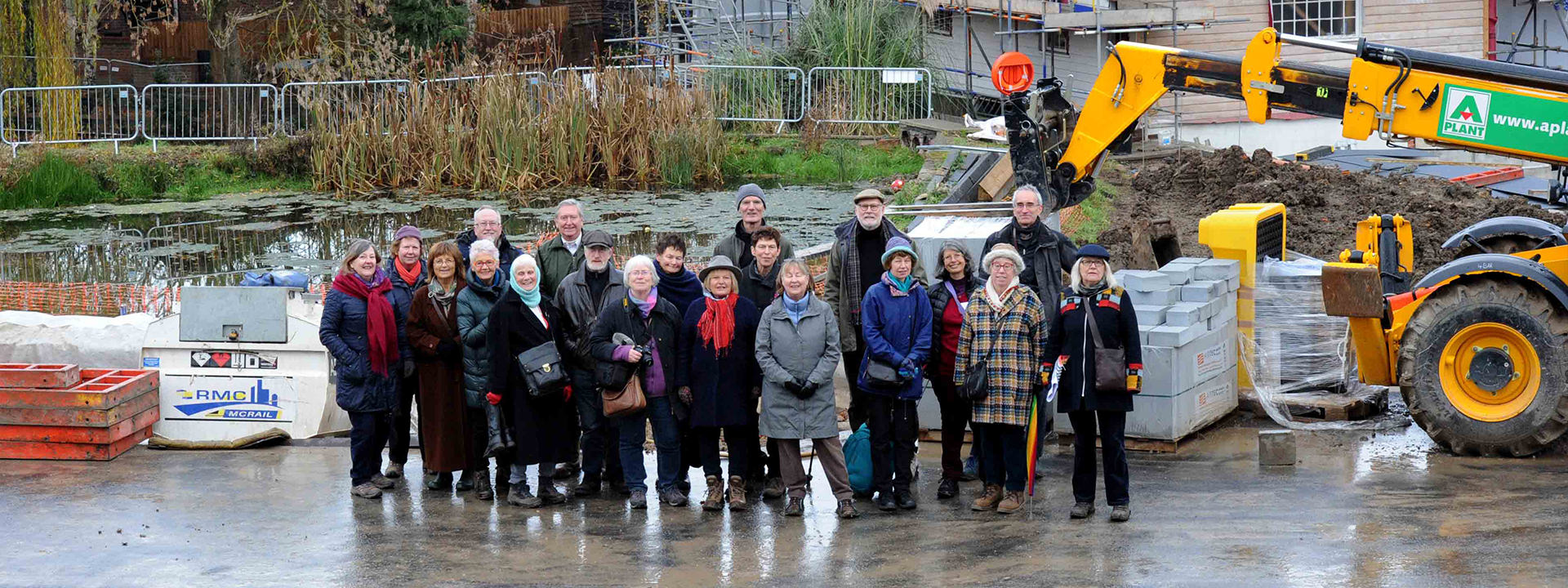Setting up a group
There are five steps to consider at the group stage. Below we will touch on these steps in some detail, however we would recommend talking through these steps with us.
When it comes to forming a group, there are several routes available to you. You may be an existing community organisation looking to diversify your service or offer. You may decide to join an existing group or form a new group. You may even be a developer looking to collaborate with a community. Whatever route you take, don’t forget that community led housing is just that – led by and with the community, so it’s important to get the word out locally and online. Talk to people you know in the area and introduce yourself to like-minded people. Are there other local projects that you could tie in with, or other events that you could go and spread the word at? Although it seems the whole world is online these days, remember to engage in as many ways as possible such as online, in person, and in local papers.
1. Form a steering group
You will need people to steer the project, keep it focused and keep it on track. The steering group plays a critical role in making sure that the whole community is involved with the project. Find out more about setting up a steering group, and what role it plays here.
2. Decide on your purpose
The steering group will need to consider your project’s goals and make sure they are met. Here are a few things to consider:
- What is the community group trying to achieve and what are the intended outcomes? The aims you decide on should relate to particular threats and opportunities.
- Establish who you are aiming to help:
- Are the group looking to house themselves?
- Is the group building homes for other people in housing need? If so what type of homes are needed?
- Develop a ‘Vision, Values & Mission’ statement. This will help to explain why the group exists, what it will achieve and its beneficiaries.
Having a clearly defined purpose will help the community to understand why the group is better able to achieve outcomes. You can use this purpose to win support from others.
3. Recruit more people
Community led housing is people powered so steering group members are a starting point. But, don’t forget that all community led housing projects also need ordinary members. However, if you are providing homes for yourselves, you won’t want to be governed by or responsible to the local community.
Providing homes for anyone in the local area will need a larger/more diverse membership. You will need to build up support in the local area which will limit or even avoid local opposition. It’s a good idea to contact and align with potential project partners such as local authorities, housing associations, private developers/builders, investors, and your local housing enabler hub.
4. Develop a business plan
Successful groups need a business plan. A business plan for a community business sets a path to to success and helps win support of potential partners and confidence among members. Try to sketch out a full picture from the start – getting a feel for the process and costs throughout the five stages (Group, Site, Plan, Build, Live).
5. Incorporate your group
Don’t rush into incorporating your group. The legal structures can be complex and it is essential to get the right one for your group. Once the group starts to enter negotiations over land or commission an architect, then they need to incorporate (be a Legal Entity). Information is available to give groups a basic legal format, which will help decide which best suits the group.
Talk to others who are going through this process or contact us for more information.

Photo by Cannock Mill CoHousing
Get inspired
Get inspired by other groups from across our region that are working to improve their local community and tackle housing need.
Listen to one of our podcasts as Peg Alexander chats to Heron Educational Charity who are developing needed homes in the local area.
Read the story of a small group in Exelby as they engaged the local community to save their pub.
Hear from a local York group, YoCo, who have come together to try build homes for local people in housing need who are struggling to afford to live in the area. In this video the group explains how they got started.